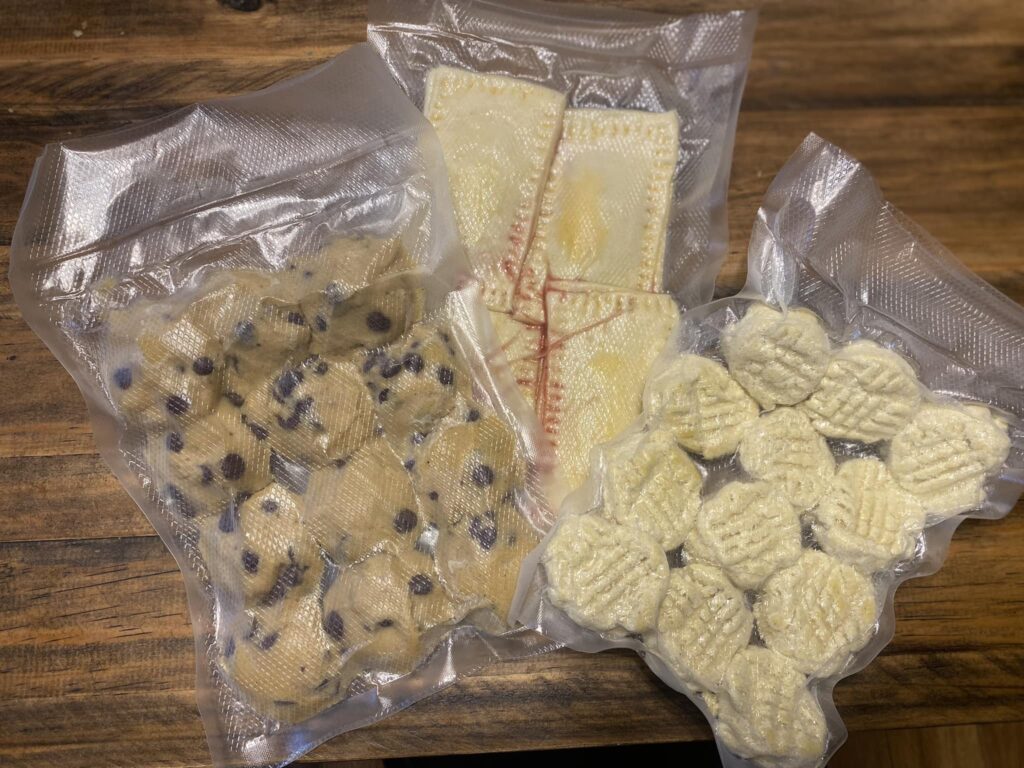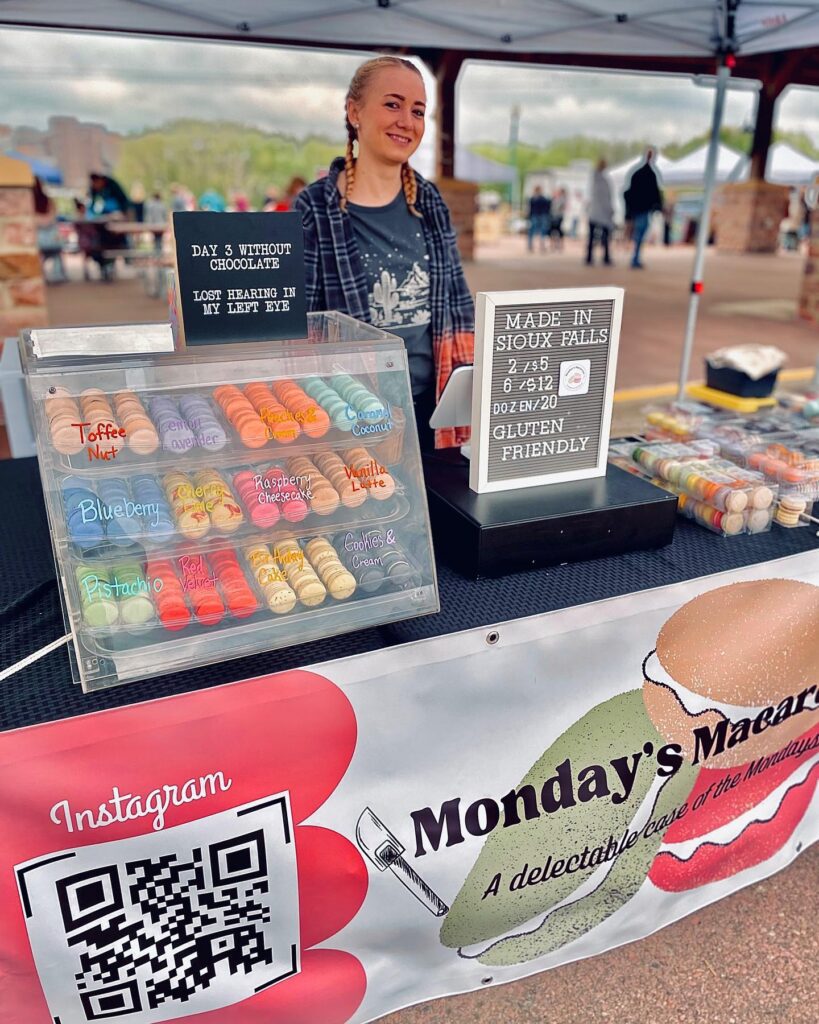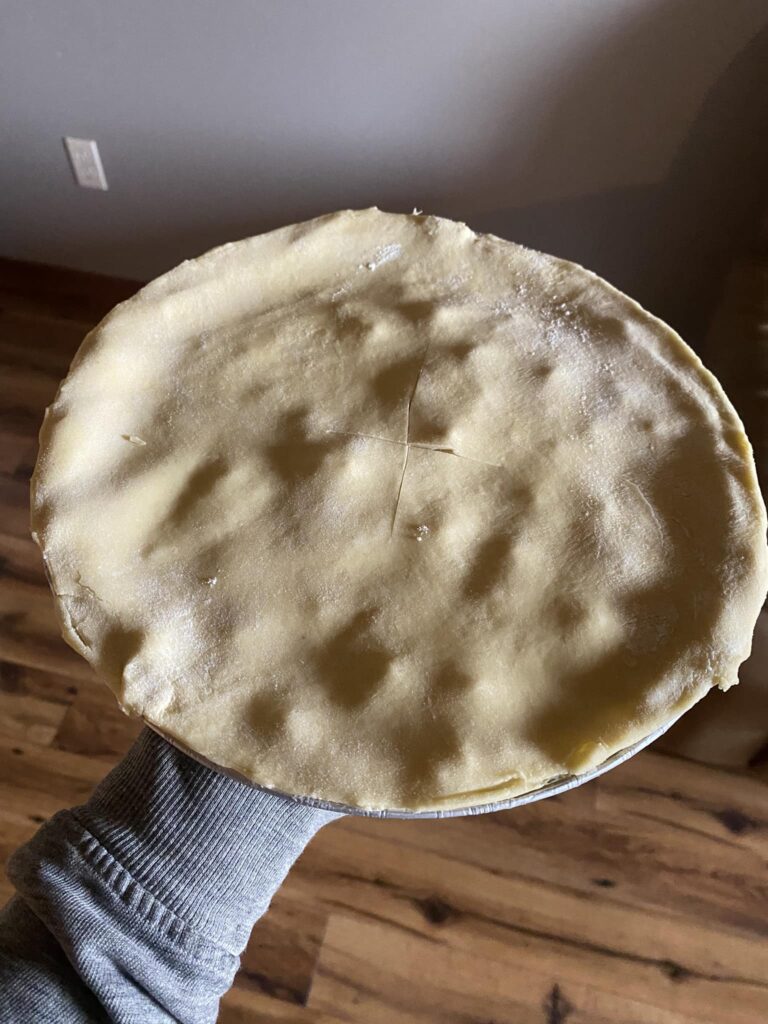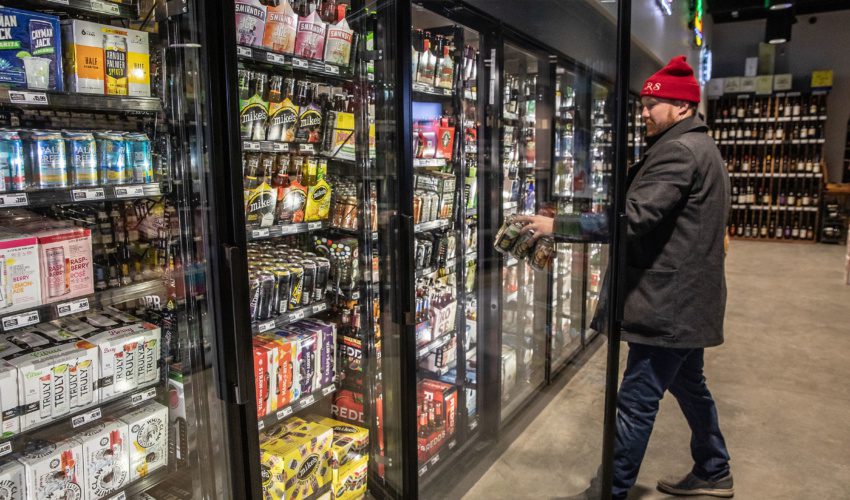State food law paves way for homemade businesses
Dec. 28, 2023
Local chefs and entrepreneurs say changes to the state’s food laws make it easier to start small when it comes to opening a food-based business.
For Eric Esquivel, the state’s cottage food law meant he could begin making and selling homemade soft pretzels out of his apartment kitchen.
Esquivel, who owns The Golden Pretzel, makes from-scratch soft pretzels. He spent several years working for a franchise and learning about the salty, buttery treats. Then, the pandemic hit, and it was time to change course.
“I told my girlfriend I wanted to make from-scratch pretzels the way I want to make them, so I decided I’ll just try it and buy some bread flour and cheese and make some pretzels and post it on Facebook and see what I get,” Esquivel said. “I got a ton of comments the first time.”
That was nearly a year ago, and Esquivel has been growing his business slowly – in between taking care of his mom and his young family. Recently, he began advertising in earnest, and the orders are coming in.
“What sets me apart is my pretzels are made from scratch, locally owned and they’re fresh.”
And it’s all starting in his apartment kitchen.
Laws help new businesses
Esquivel said the cottage food laws have helped him start small, build a customer base and refine his product before increasing his overhead.
In South Dakota, cottage laws allow makers to sell certain foods without a food service license, according to the state Health Department. In 2022, House Bill 1322 was passed by the Legislature and signed into law. According to SDSU Extension, “The bill expands the types of home-produced, home-canned and food products allowed to be sold directly from a household.”
Under the previous law, makers were allowed to sell from their home non-temperature-controlled baked goods and only up to $5,000 a year. For a farmers market, makers could sell unprocessed produce – vegetables or fruit and non-temperature-controlled baked goods or a canned product – but that had to be reviewed by a third party, said Curtis Braun with SDSU Extension.
The big change, he said, is the law now reads non-temperature-controlled goods – not just baked goods. “And that’s a lot more food categories,” Braun said. “So, for example, freeze-dried was a no before and a yes now.”
Think soup mixes or other freeze-dried items.
The other big change is with canned goods. Previously, a third-party authority would need to test canned goods for food safety. Now, individuals can take an online food safety course and get a certification that lasts for five years, he said.
“One of the complaints we had heard was that it was cost-prohibitive to get the foods tested,” Braun said. SDSU now offers free testing, and processors can still do that. Extension can help processors figure out what to do if the pH is wrong, for example.
Canned goods can be sold from home now, too, not just the farmers market.
Esquivel offers pretzels and a cheese sauce dip.
“I believe everybody loves pretzels,” he said. “I just love the taste, the saltiness, the bread, the chewiness and the cheese dip. It’s just a simple pretzel, and people love it.” His hot pretzels were allowed under the previous law, but he still praised the changes.
“After I saw the laws were updated, it made it easier for entrepreneurs,” Esquivel said. “I told my significant other, this is the perfect time. This will be so much easier for me.”
Amanda Halsey, who owns Monday’s Macarons, said the changes helped clarify cottage food requirements .
“Prior to the most recent legislative changes in 2022 for home-baked goods, I found the process to be cumbersome to navigate what was or wasn’t allowed to be sold and where. The law change brought attention to the state welcoming entrepreneurship at this level,” Halsey said.
She had been making and selling macarons before the changes, but because it originally required customers to pick up products at the seller’s home, she wasn’t sure how much she wanted to advertise online. Now, she can sell her product at retail outlets.
Braun said regulations all relate to “the product, the process, the package and the place you sell it. This all dictates what jurisdiction you fall under,” he said. “The cottage food law does allow you to sell more non-temperature-controlled goods, canned goods without going through a process and even frozen vegetables and fruits. Before, you needed a license for those.”
Hailey Toft of Harrisburg has always loved cooking. “Cooking from scratch is a lost skill,” the mom of four said, noting her specialty is comfort food. “I’m more into home-cooked meals, English muffins, soup, making my own noodles.”
When she would make meals, her mom would ask her to double the recipe and then offer to buy it.
“They kept trying to get me to sell the stuff I made,” Toft said. A few months ago, she did a little research and noted the changes to the state’s cottage food laws.
And Homecooked by Hailey was born, selling pot pies and cookies, which are flash frozen, so customers can bake a few at a time at home.
“South Dakota has great cottage laws. If I had looked into this two years ago, I wouldn’t have done this,” she said. “It’s something I’ve always wanted to do.”
Halsey sees the changes as a positive for the state.
“Many people want to start restaurants and bakeries, but it’s very frightening to see the fail rate of restaurants,” she said. “If you are able to start small out of your home, you can build a customer base that will help alleviate a small portion of the stress of jumping into the restaurant business headfirst.”
But Halsey sees it as more than that.
“South Dakota, and Sioux Falls especially, is growing in diversity by the minute. This change has opened the door to welcome home-good producers from all cultures to share their treats more freely with the community,” Halsey said. That includes vendors at a farmers market, for example, supplementing selling produce with home-baked goods from different cultures.
Braun said most calls he fields are from people who are trying to figure out where they can sell their products and how to follow the right regulations. “People want to do the right thing and are trying to understand,” he said.
He helps them understand how to start small.
“A lot of people want to go to retail right away, but it comes at a price,” Braun said. “If you go that route and go to a grocery store, you need to go through a licensed kitchen, and that takes more money. I try to encourage them to sell from home or a farmers market or craft show and see how it does before you make the dive into retail.”
Busy home cooks
Esquivel does most of his cooking on the weekend. During the week, he’s busy with his family – ages 8, 2 and 2 months. “I don’t want to overwhelm myself,” he said. “I’m going order by order until I can get into a shared kitchen. I have to keep the pretzels warm, and they are best when they are eaten fresh.”
“I’m a home baker, which is super hard, but I’m making it work,” he said. He hopes to rent a shared space from a local chef, giving him access to bigger ovens to make his pretzels. “Right now, I can do two trays.”
Once he has the shared space, and his restaurant and kitchen license, he can cater.
This was Halsey’s first year selling macarons at the Falls Park Farmers Market as a vendor, and she’s looking for additional winter events to continue selling, along with retail spaces where she offers her product. And, of course, catering. “Weddings, graduations and parties of all sizes bring me great joy to be part of in this small way.”
When she began her business, she was working two jobs. “Working on my macaron recipe was relaxing, so I was in the habit of making macarons anytime I could.” She tended to have Mondays off both jobs and decided macarons were “a great way to turn around a ‘case of the Mondays.’”
And that’s how Monday’s Macarons were born – with the tagline of “a delectable case of the Mondays.”
Toft would love to make and sell other foods, but she’s focusing on her pot pies now.
“In my eyes, I have perfected the recipe.” She makes a sourdough crust, and the filling has ingredients from local and regional growers, including onions, potatoes, garlic and chicken. “It’s all-in-one. You just pop it in the oven. You don’t even need a side for it. It’s a comfort food, and I make them really nourishing for your body.”
She makes the pies, then flash freezes and vacuum seals them.
It’s a busy job – she has four kids age 6 years to 6 months, and she home-schools. “The only chance I have to do pot pies is after 8 p.m. when they go to bed. It’s a season of being very busy, and I have to balance everything,” Toft said.
“I have a huge passion for this, and I just was ready for a little extra something for me. It’s a lot of work, so when I get sweet messages from people saying they love them or want to order more, it motivates me and makes me feel good.”
The laws made it easier for her to get started.
“If they didn’t have these laws, I wouldn’t have the time or finances to go and open a shop and start from nothing,” Toft said.

















